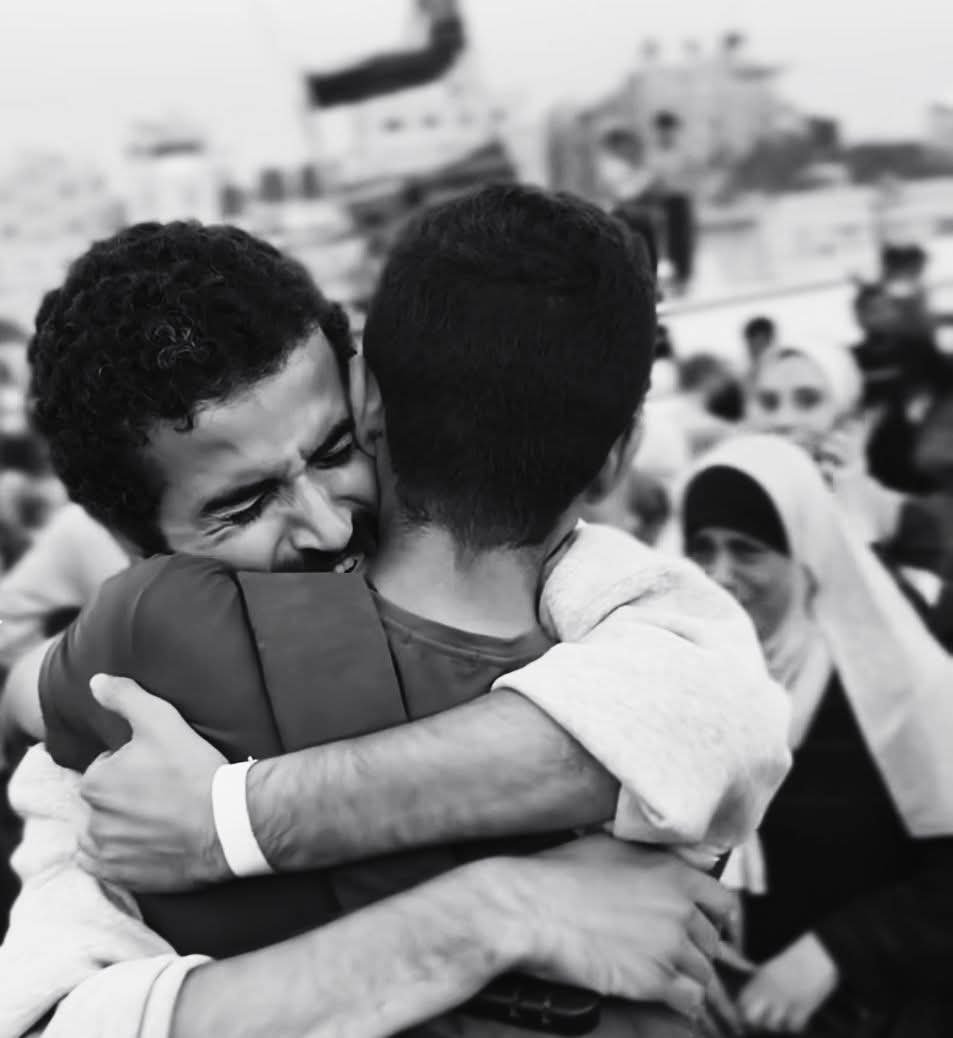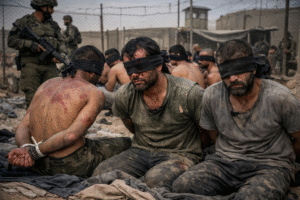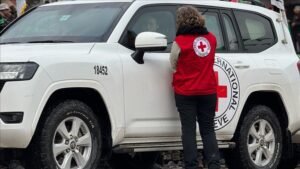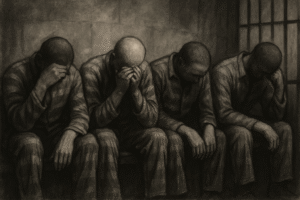The chapters of the genocide experienced by Palestinian prisoners in the occupation’s prisons continue to unfold day after day. As part of documenting the testimonies of survivors of captivity and detention, the Palestinian Center for Prisoners’ Defense continues to record live testimonies from released prisoners who endured long months of torture, beatings, and mistreatment that nearly cost them their lives during their stay inside Israeli prisons.
The Center met with released prisoner Khaled Barakat, who was arrested in Gaza City during the ground invasion. After his home was raided, he was taken to several locations he could not identify until he eventually reached the Sde Teiman detention camp in a deteriorating health condition due to what he had been subjected to from the very first moments of his arrest: being stripped of his clothes, shackled, beaten, and abused continuously from the moment of arrest until his release. Barakat recounts part of his suffering and says:
“In the first days of my arrest, I spent 130 days in Sde Teiman blindfolded and shackled at both the hands and the feet. Police dogs were brought in daily to attack us, and my ribs and those of several prisoners were broken due to their strength and ferocity. Until the moment of my release, I was never seen by any doctor, and the pain from improperly healed injuries continues. One of the hardest things we faced in Sde Teiman was using the bathroom—once a day at best—and we had to relieve ourselves while handcuffed and shackled.”
Barakat adds in his testimony:
“The place consists of a set of metal cages in which a certain number of prisoners are held. Each large cage held around 130 detainees who were monitored every minute, and any suspicion of spontaneous movement exposed us to nonstop beatings and insults. As for the food, it was at best a piece of dry bread with a spoon of tuna or some rice.”
He explains that he was transferred to more than one prison and detention center, recalling:
“In Ofer Prison, I was subjected to torture and beatings for consecutive days. We were ordered to go out one by one to be severely beaten with sticks and sharp tools. Medical conditions and elderly prisoners were not taken into account—in fact, they deliberately started the beating with them.”
He describes the suffering of one of his fellow prisoners, saying:
“One of the prisoners beaten with us had diabetes. After days of his foot being infected, worms began to come out of it. They then took him to the hospital and returned him to us days later with his foot amputated. We also had prisoners with both feet amputated. These were among the hardest scenes we faced.”
Barakat continues:
“During one of the transfers, when returning from Ofer to Sde Teiman, the dogs attacked us before we entered the prison. During transport, we were subjected to electric shocks inside the bus and beaten with metal handles throughout the journey. Our mattresses were taken from us during the winter, and we had no winter clothing. Most prisoners had scabies. All the prisons we were transferred to had surveillance cameras everywhere, and we were not allowed to use the bathrooms. We had to relieve ourselves in a bucket, and they refused to empty it until its contents spilled into the prisoners’ rooms. Use of this bucket was only permitted at specific times. We received no visits from the Red Cross throughout the detention period and were threatened with death after our release, told that we would not be allowed to live in peace. They told us many times that they had bombed our homes and killed all our families.”





